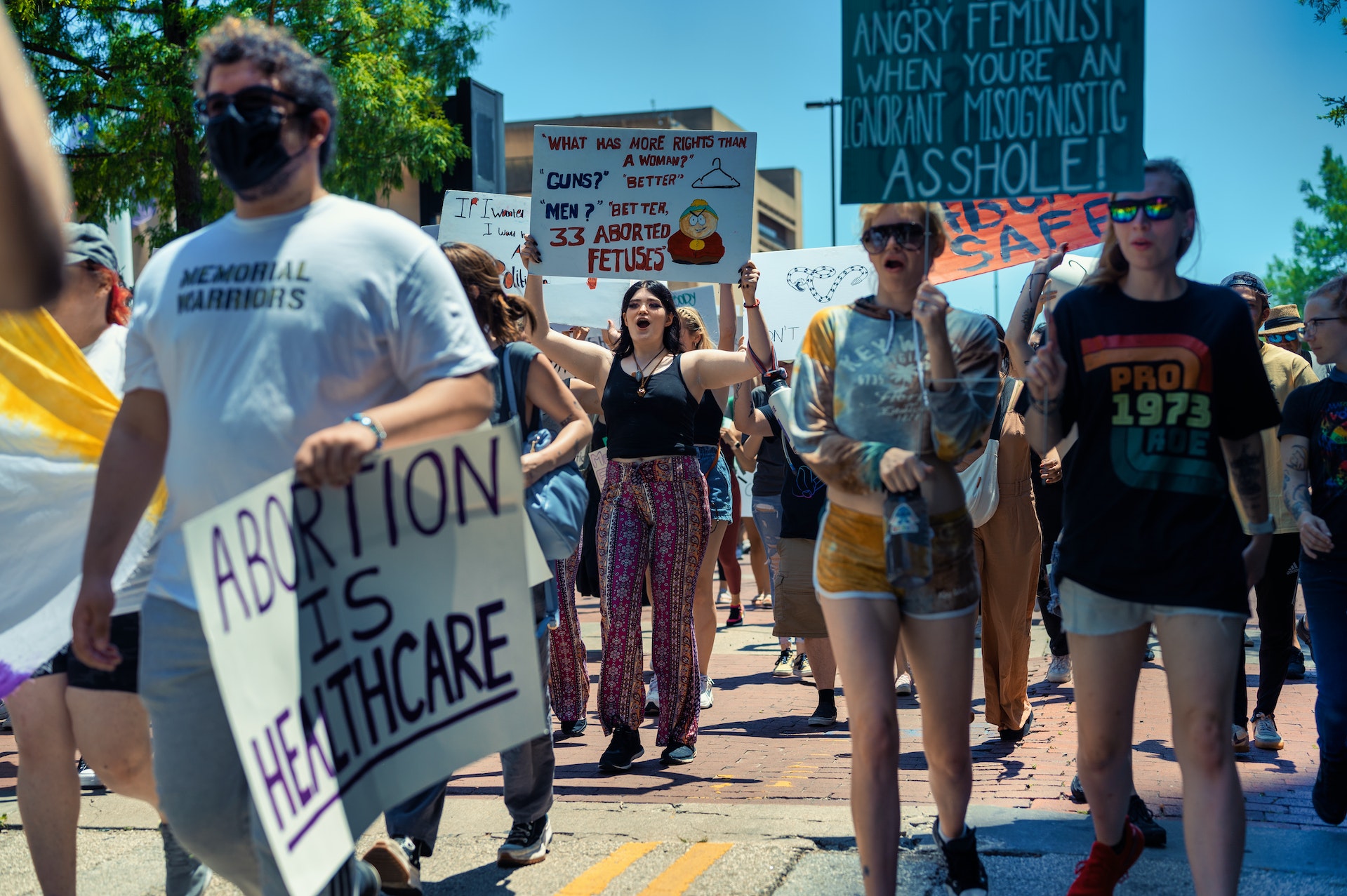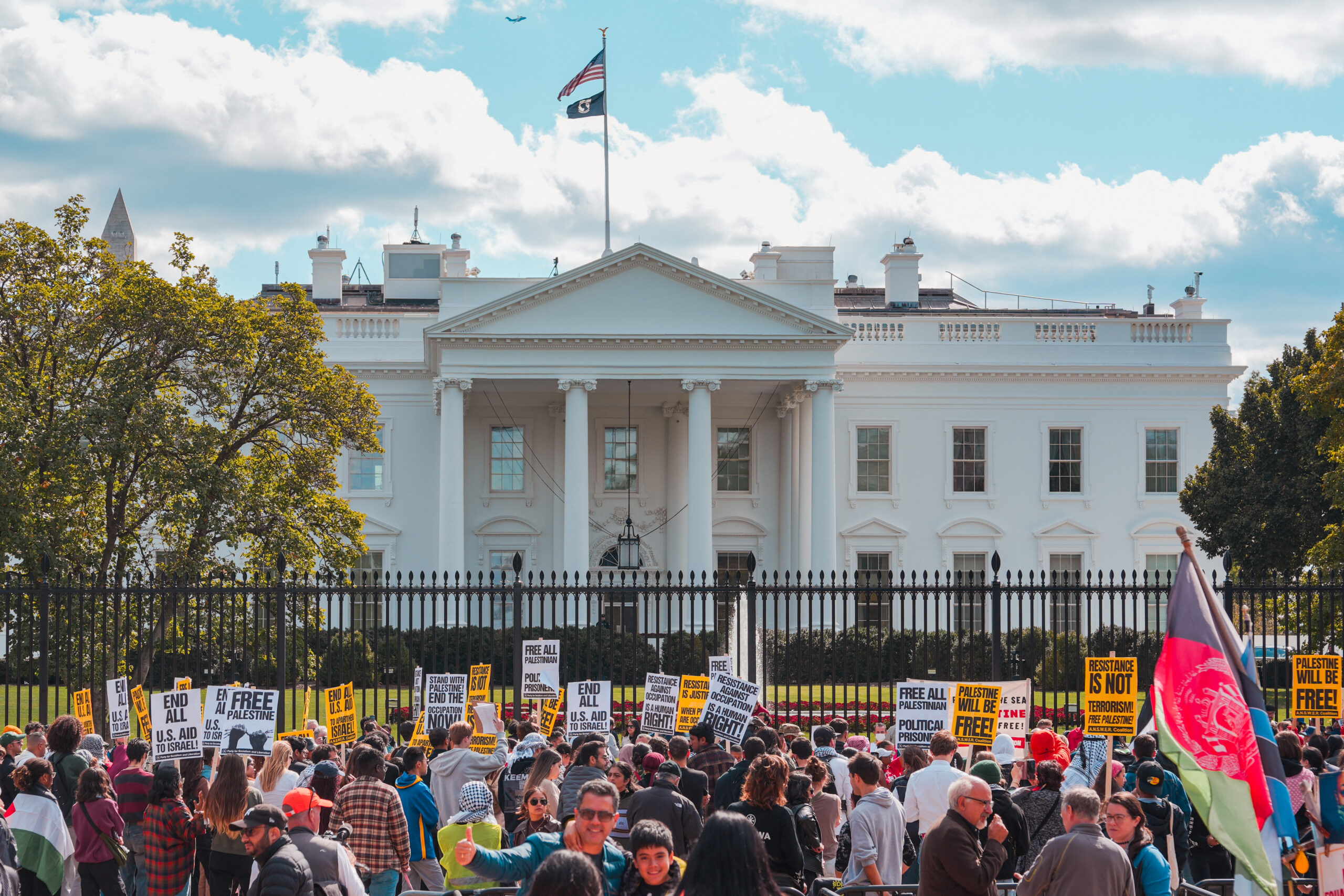Roar writer Aneela Aslam on the impact of the recent Roe v. Wade ruling on abortion rights in the US and American democracy.
Roe v. Wade was a landmark ruling sprung in the 1970s by second-wave feminism that marked the right to abortion being constituted in the US Constitution. However, this June the case of Roe v. Wade was overturned by the Supreme Court, and it was ruled that abortion was not a right conferred by the constitution. Not even 50 years after the original ruling, abortion rights in the US have deteriorated to resemble those of the pre-1960s. Abortion is a human right and the decreasing access to this healthcare questions the United States’ democracy on a domestic and global scale.
Roe v. Wade being overturned has enabled individual states to regulate abortion however they see fit. Therefore, abortion rights have been severely impacted, and it is estimated that in 60% of the states, abortion is banned or under threat of being banned. For example, in largely Republican states “trigger” bans are laws being designed to ban abortion in the case that federal protections are overturned. For example, Texas enacted a trigger ban on the 15th of August 2022 which ruled that the harshest punishment for providers of abortions is life imprisonment and up to a $100,000 fine. Similarly, Indiana’s Republican governor signed a total ban on abortion that will come into effect on the 15th of September. However, in some states, these trigger bans have been blocked by judges. Utah, a strong Republican state, had its trigger ban on abortion blocked by a Jude. Therefore, Utah was forced to enact a temporary 15-week ban on abortion. The breakdown of abortion control in the United States mirrors the strong cracks in the polarity of US society. States like Florida further represent this polarity. Despite a judge blocking a trigger law on abortion, the state still upholds a 15-week abortion ban. Meanwhile, more democratic and liberal states like California, New York and Hawaii maintain abortion as a legal practice.
How does the United States Abortion Ban affect its place as a global power?
The United States has been a global hegemony for decades and upholds the image of being a democratic Western nation-state. However, the recent overturning of abortion as a protected characteristic of the constitution brings into question the actuality of US democracy. This is prompted by the fact that access to safe abortions is a human right, according to Amnesty International. How can a basic human right be denied to millions of Americans within the proclaimed democratic system of the US? Abortion is inevitably intertwined with democracy as the women’s rights movement was key to legalising abortion to begin with. Although the United States is a secular state, in theory it has always behaved as a democracy. However, the banning of abortion by the Supreme Court questions the level of secularism within the domestic agendas of US lawmakers.
For example, many of the United States’ allies and fellow Western democracies have condemned the ban on abortion. Across the Atlantic, UK Prime Minister Boris Johnson proclaimed that the ruling was “a big step backwards”. Additionally, New Zealand’s PM Jacinda Arden, commented that the decision was “incredibly upsetting”. Trudeau, Canada’s current Prime Minister, and the French President Macron also condemned this decision, alongside UN Human Rights experts. The UN experts denounced the US Supreme Court’s decision as “stripping women and girls in the US of legal protections that ensure their ability to live with dignity”. This was further supported by many aid organisations that argued that the legality of abortions is not significant as abortions will occur regardless, just in unsafe conditions and environments.
Moreover, the banning of abortions in the United States mirrors similar law-making in many nations that the United States condemns on an international scale. The infographic created by the centre of reproductive rights demonstrates this. Currently, abortion rights in the States span from Category Two (life-saving) or Category Five (on request).
Previously, the United States has condemned Category Two nations like Middle Eastern states for their approach to women’s rights, although currently the secularist beliefs that are prominent within the Republican nature of the US have threatened access to abortions for Americans, and consequently, women’s rights.
So how does overturning Roe v. Wade in the US affect women’s rights?
Firstly, access to safe abortions will be restricted and the average distance between 24 million women of reproductive age and the nearest abortion clinic would be increased by a minimum of 100 miles. Furthermore, the economic impacts of limited access to abortion will lead women into financial insecurity and impact those of the most disadvantaged demographics. The chart from Nature (source 6) highlights the increased risk of financial instability with the threatened access to safe abortions.
Furthermore, decreased abortions due to the overturning of Roe V Wade could increase maternal death rates. In the case of certain types of pregnancies and complications, abortions can be a life-saving measure of healthcare. A decreased accessibility to this kind of healthcare will increase mortality rates in pregnant women. Statistics reported by the CDC convey that prior to Roe v. Wade being passed in 1973, 39 deaths due to illegal abortions were reported to the CDC. However, by 1976, the statistic had dropped to 2 deaths per annum and remained below this number since the end of the 1970s.
It is certain that the impact of decreased access to abortions will be instrumental in the United States. The lack of protection for abortion as a human right in the United States poses the question of whether the US will enact more conservative laws that denounce basic human rights. Additionally, the split nature of Category 2 to Category 5 abortions suggests how politically polarized the US is on a societal scale. Thus, the recent ruling on Roe v. Wade questions the US’s position in the global power structure as the diminishing access to abortion represents the dwindling nature of the nation’s democracy.
















